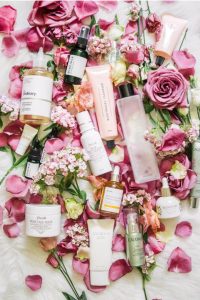By Amanatullah Yusuf

Habiba’s weekly allowance has been her lifeline since she secured admission into Usmanu Danfodiyo University Sokoto. This modest stipend has allowed her to purchase essential feminine products.
However, the relentless rise in prices has rendered her allowance insufficient—leaving her struggling to meet her basic needs.
“As a lady, beautifying ourselves has been part of our being for as long as I can remember and we can’t even afford beauty products,” Habiba lamented
Inflation has created a dangerous situation for young women like Habiba. The scarcity of resources has driven some into precarious situations, relying on men who offer financial assistance in exchange for companionship.
Habibat fears that this economic pressure could push more young women into such exploitative relationships just to make ends meet. The daily inflation and the need to satisfy their feminine side have led to an increase in the rate of theft in Habiba’s hostel.
“ The ripple effects of inflation are evident in the rise of theft within my hostel because the struggle to maintain their femininity and dignity has led some women to desperate measures”
Struggles between Basic Necessities and Hygiene
Aminat, an Oriflame distributor and 300-level student at Usmanu Danfodiyo University, Sokoto, has witnessed firsthand the impact of inflation on women’s purchasing power.
The skyrocketing prices of underwear and sanitary pads, necessities for any woman, have left her and others in a constant state of financial distress.
“Bras now cost 2,500- 3,000 and that’s the less pricey ones. For busty ladies, it rises to 11,000- 12,000. Tights are now 5,000 and panties are sold for 1,000.”
“Despite these pricey items, I also have to deal with hunger. It places me in a situation where I have to make a critical choice. Do I want to maintain hygiene and tidiness or choose to eat and look unkempt? Stomach or appearance,” she cries out.
According to her, the number of customers purchasing Oriflame products from her has drastically decreased. Back when Oriflame Feminelle was 8,000, she explained that she had lots of buyers but with the increase to 11,000, she had next to no customers.
Aminat recounted how some of her customers could no longer afford their needs due to high prices.
“There was this lady who came to buy Feminelle, but upon hearing the new price, she remarked that in an economy where finding food is a struggle, spending over 10,000 Naira on a vaginal wash is unthinkable. This choice places her at risk of infection.”
“Another customer resorted to paying 1,000 Naira in intervals until she could pay off the Feminelle. This is a woman who could easily afford it before the sudden rise in inflation.”
